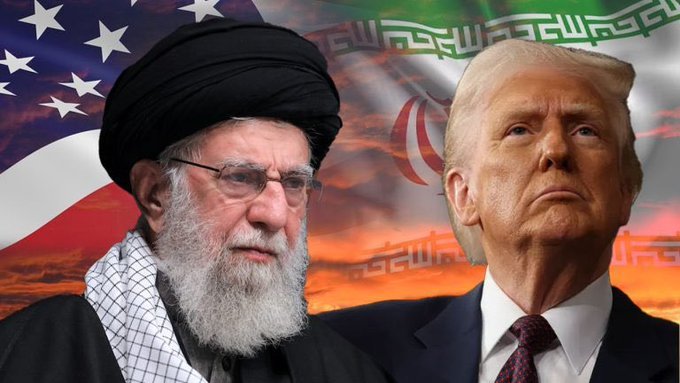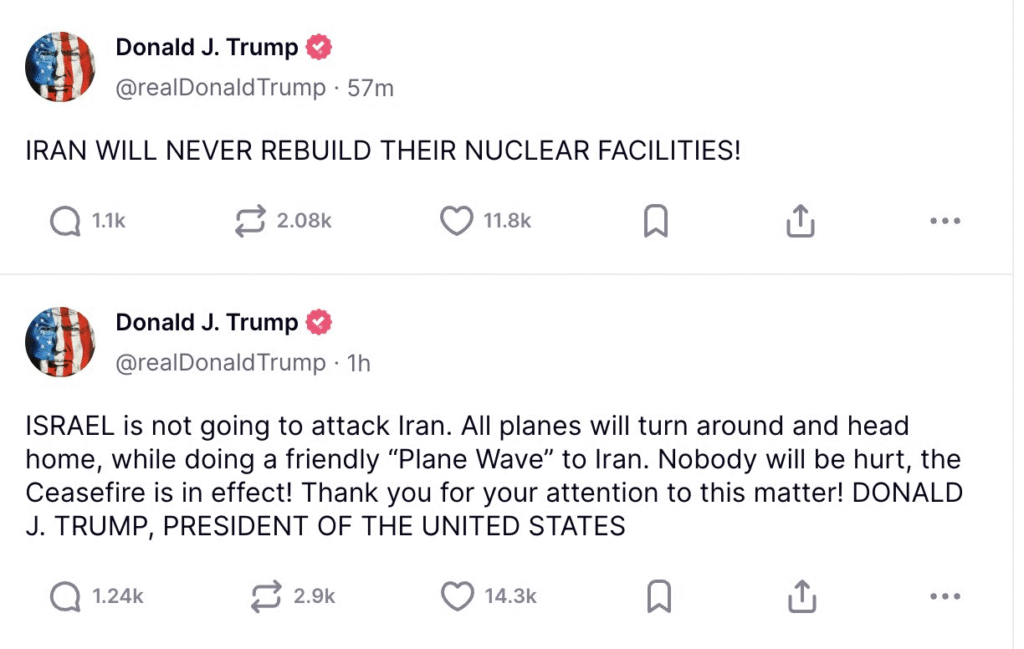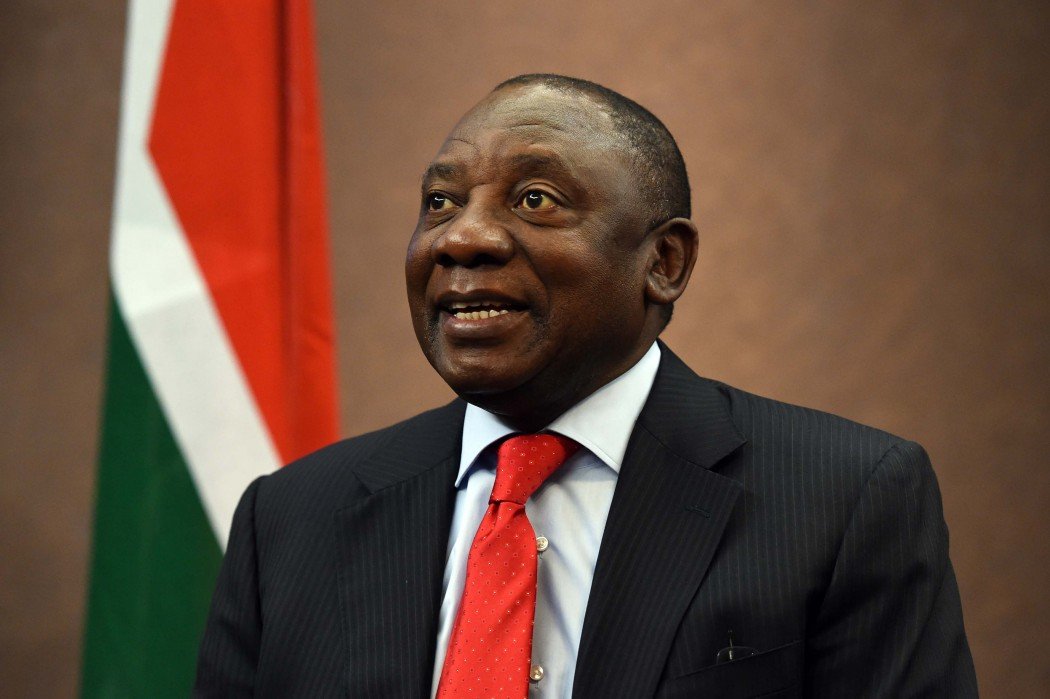Iran’s military has accused Israel of launching repeated strikes on Iranian territory early Tuesday, despite a ceasefire agreement announced by U.S. President Donald Trump.
According to Iranian state television, “the Zionist regime launched three waves of attacks on sites in Iranian territory until 9:00 am today.” The military spokesman did not share further details.
Just before the truce began, both countries exchanged heavy fire overnight. Iran reportedly launched a ballistic missile that struck a residential area in Beersheba, a city in southern Israel. The explosion killed at least five people and injured over 20 others.
Israel’s military confirmed that missiles came from Iran and activated its air defence systems. The IDF asked residents to take cover in shelters, stating that interception efforts were underway.

Israel described Iran’s actions as a severe violation and promised to respond forcefully. In turn, Iran denied responsibility for the missile strike.
Its Supreme National Security Council claimed that the war had already been halted by the time of the attack. The council also accused Israel and its allies of escalating tensions.
Trump Announces Ceasefire but Situation Remains Fragile
President Donald Trump announced on Monday that both Iran and Israel had agreed to halt hostilities under a 24-hour ceasefire framework. Iran was expected to begin the process within the first 12 hours, followed by Israel. The war would officially end after this time frame if both complied.
Trump described the agreement as a “major diplomatic breakthrough” and added, “This is a war that could have gone on for years and destroyed the entire Middle East, but it didn’t, and never will.” He credited both governments with showing “stamina, courage and intelligence” for ending the fighting.
In his statement, Trump declared, “God bless Israel, God bless Iran, God bless the Middle East, God bless the United States of America, and God bless the world.”
The ceasefire followed nearly two weeks of intense conflict. Both nations had exchanged missiles and airstrikes, leading to rising casualties and fears of a larger regional war.
Ceasefire Faces Violation as Tensions Flare Again
Yet, while Trump’s announcement was welcomed in some diplomatic circles, fresh violence soon cast doubt on the truce.
Less than 24 hours after the ceasefire was announced, fresh attacks were reported. An Iranian missile reportedly hit Beersheba, killing civilians just before the ceasefire window opened.
Israel responded by ordering strikes on targets in Tehran. Iran insisted that its operations ended before the ceasefire deadline and denied breaching the deal.
Sirens sounded again across northern Israel as fresh missiles were detected. The IDF claimed it had intercepted another projectile launched from Iran. However, Tehran denied any new attacks, warning that “any further aggression will be met with a decisive, firm, and timely response.”
The back-and-forth accusations left the ceasefire hanging in the balance angering President Trump who swiftly blasted both sides. In a message posted on Truth Social, he wrote, “Israel is not going to attack Iran. All planes will turn around and head home, while doing a friendly ‘plane wave’ to Iran. Nobody will be hurt, the ceasefire is in effect!”
Still, the Israelis struck.
If anyone wanted more context on the Trump F-Bomb – (2:30): pic.twitter.com/3NFS5ZffFG
— Tal Hagin (@talhagin) June 24, 2025
Trump admitted that both sides may have violated the ceasefire agreement but questioned whether they did so intentionally. “I don’t like the fact that Israel went out this morning at all. And I’m going to see if I can stop it,” he said, further warning Israel not to “drop those bombs” on Iran, while also stating that Iran would “never rebuild its nuclear program“.
Global Reaction and Economic Impact
The international response has been mixed. Qatar, believed to have played a role in facilitating quiet diplomacy, appealed to both parties to honour their agreement. European Union and NATO leaders urged restraint, warning of severe consequences if the conflict reignites.
Markets responded positively to the ceasefire news. Oil prices fell as investor confidence temporarily improved. Still, the volatile situation left many uncertain about what comes next.
Despite efforts at de-escalation, the ceasefire remains fragile. Both countries have blamed each other for fresh violations, and trust between them appears minimal. As Tuesday continued, observers waited anxiously to see whether peace would hold or war would return.
Enjoyed this story? Rate it, leave a comment💬, and follow us on social media for more. Got a news tip or story to share? Submit it here and earn points toward ₦10,000 rewards!








Finally, I pray they all maintain the terms of the ceasefire.